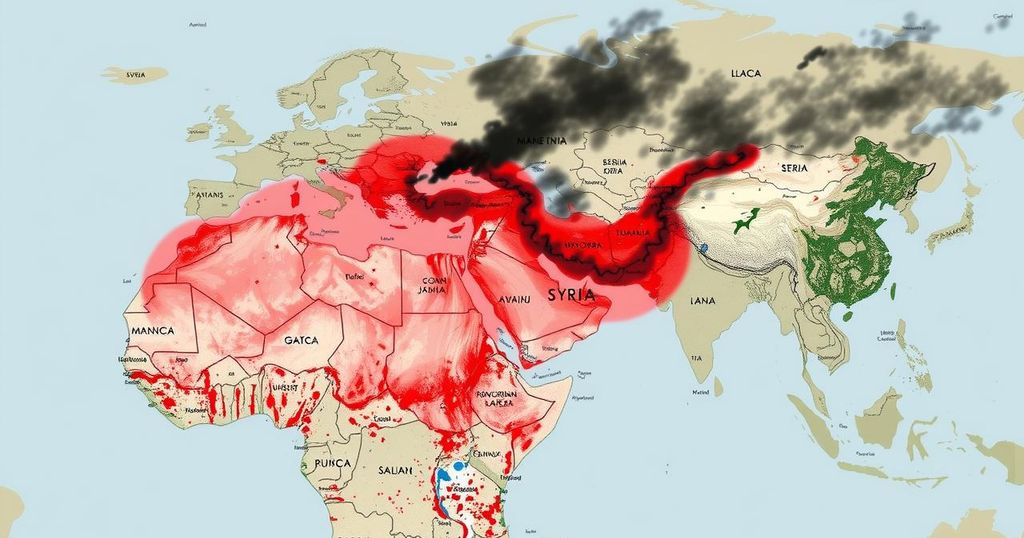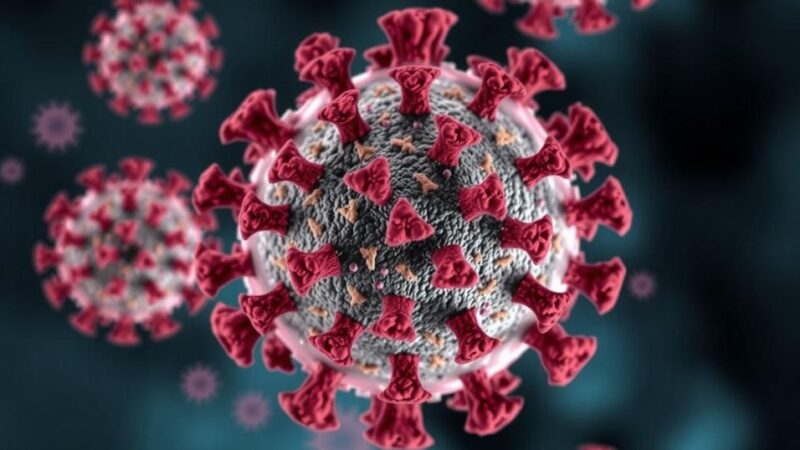The article reports on escalating communal violence in South Sudan, with rising civilian casualties and calls for accountability. It also discusses WHO’s humanitarian efforts in Syria, including essential medical supplies and food distribution. In Gaza, the situation is dire, with reports of infant deaths and hospital closures due to conflict, affecting humanitarian access.
The ongoing communal violence in South Sudan remains a significant concern, with recent reports from the United Nations Mission in South Sudan (UNMISS) highlighting a troubling increase in civilian casualties and related crimes. Between July and September of the previous year, the UNMISS recorded the deaths of 299 non-combatants, along with numerous injuries and abductions, particularly prevalent in areas like Warrap State and Central Equatoria State. The instability caused by clashes between government forces and various splinter groups exacerbates the situation, prompting calls for accountability and sustainable conflict resolution by local authorities.
In Syria, the World Health Organization (WHO) has delivered its first humanitarian air charter of the year, providing over 32 tons of medical supplies designed to assist approximately 300,000 individuals. This initiative is part of ongoing efforts to alleviate the health crisis exacerbated by the civil war, as seen through continuous humanitarian flights and training missions for medical personnel. The World Food Programme (WFP) is also active in distributing essential food parcels, aiming to support families affected by the conflict.
In Gaza, the situation remains dire as humanitarian needs grow, with distressing reports of infant deaths due to hypothermia. With infrastructure under attack and certain hospitals rendered non-operational, access to necessary supplies remains severely curtailed. UN officials emphasize the importance of protecting civilians and ensuring humanitarian access amid ongoing hostilities. Meanwhile, attempts by humanitarian organizations to reach besieged areas in Northern Gaza continue to be thwarted by local authorities, raising urgent concerns regarding the welfare of those in need.
The ongoing crises in South Sudan, Syria, and Gaza represent significant humanitarian challenges that the international community has been striving to address. In South Sudan, escalating communal violence has not only led to high civilian casualties but also highlights systemic issues of governance and accountability. Syria continues to deal with the dire aftereffects of protracted conflict, necessitating significant humanitarian interventions to meet the urgent health needs of its population. Meanwhile, Gaza is marked by both armed conflict and humanitarian crises, with mortality rates among children increasing due to preventable causes amid harsh living conditions.
In summary, the reports from South Sudan, Syria, and Gaza illustrate the profound challenges faced by civilian populations amidst armed conflict. The urgent need for accountability, humanitarian aid, and international support is evident as organizations strive to mitigate the suffering caused by these complex crises. The actions of the UN and associated humanitarian agencies are crucial in addressing immediate needs while also working towards long-term solutions to restore stability and safeguard civilian lives.
Original Source: news.un.org







